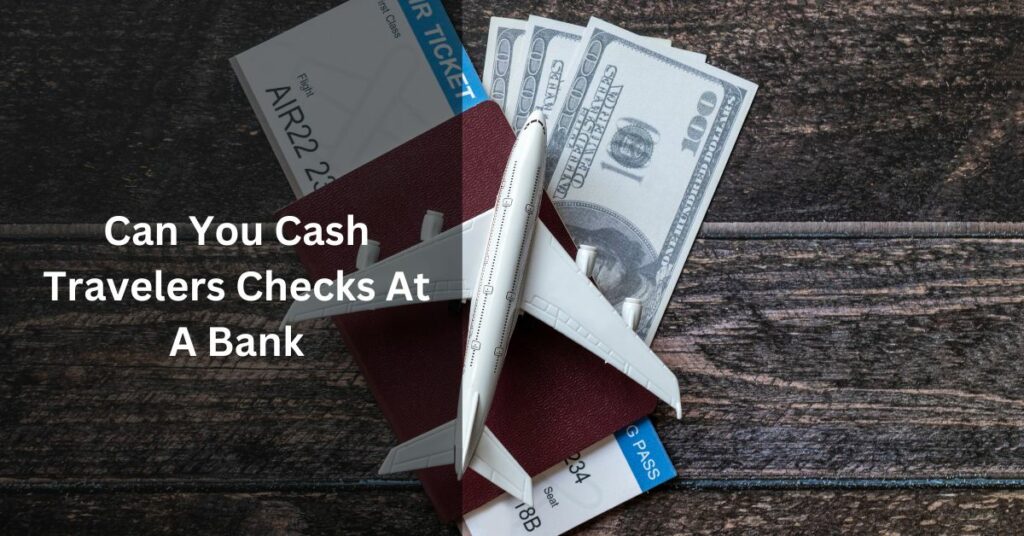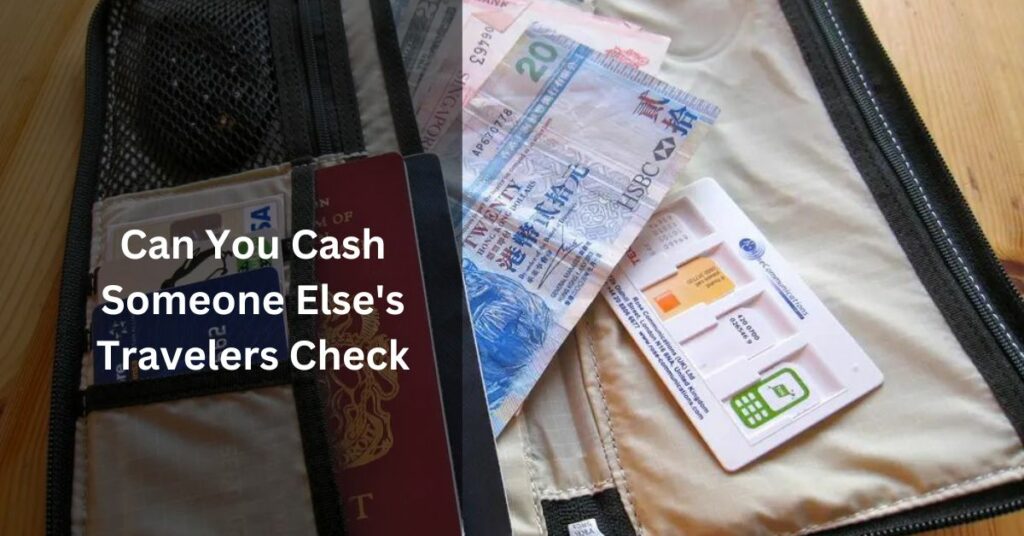As someone who loves to travel, I know firsthand the importance of having various payment options when exploring new destinations. When planning my trip to France, I assumed that traveler’s checks would be a safe and reliable option for accessing cash. However, upon arriving in France, I quickly learned that not all traveler’s checks are created equal.
American Express Traveler’s Checks used to be widely accepted in France, but this is no longer the case. In fact, many merchants and banks refuse to accept them altogether. This can leave travelers stranded without access to cash and scrambling for alternative payment methods.
But American Express isn’t the only issuer facing issues with traveler’s checks in France – other issuers’ checks are also not widely accepted. So what kind of traveler’s checks should you avoid using in France?
Let’s dive deeper into this topic and explore alternative options for financial security while traveling abroad.
American Express Traveler’s Checks are No Longer Accepted
Hey, did you know that if you’re planning on using American Express Traveler’s Checks in France, they won’t be accepted anymore? It’s true. Despite being one of the most popular traveler’s check issuers in the past, American Express has phased out this payment method in France due to a lack of demand.
In fact, many merchants and banks no longer accept them. The history of traveler’s checks dates back to the late 1800s when American Express first introduced them as a safer alternative to cash for travelers. However, with the rise of credit and debit cards, traveler’s checks have become less common.
Comparatively speaking, credit and debit cards are much more widely accepted in France than traveler’s checks. So if you’re planning a trip there anytime soon, it might be best to leave your American Express Traveler’s Checks at home and opt for another payment option instead.
Other Issuers’ Traveler’s Checks are not Widely Accepted
I’ve found that when traveling, relying solely on traveler’s checks can be a bit risky. One reason for this is the decline in acceptance, particularly of American Express Traveler’s Checks.
Another issue I’ve encountered is that other issuers’ traveler’s checks are not widely accepted either. As a result, it’s important to research alternatives to traveler’s checks and payment options before embarking on your trip.
Reasons for Decline in Acceptance
You may have noticed a decrease in the acceptance of traveler’s checks due to the rise of electronic payment methods and concerns about fraud. As technology advances, more people are opting for credit or debit cards instead of carrying around paper checks that can be easily lost or stolen.
Additionally, there have been cases of counterfeit traveler’s checks circulating in certain countries, making merchants hesitant to accept them. Despite these challenges, there are ways to revive the use of traveler’s checks.
Some issuers have started offering chip-enabled versions that provide added security measures against fraud. Educating merchants on how to identify legitimate checks and providing incentives for accepting them could also increase their acceptance rates.
However, it’s important to note that alternatives to traveler’s checks, such as prepaid debit cards and mobile payment apps, are becoming increasingly popular and may eventually replace paper checks altogether.
Alternatives to Traveler’s Checks
Like a chameleon changing its colors to adapt to its surroundings, the world of travel finance has evolved with the times by offering alternatives to traveler’s checks that cater to modern-day conveniences and security measures.
One such alternative is mobile payments, which allow travelers to make transactions using their smartphones or other electronic devices. This method eliminates the need for physical currency or traveler’s checks, as funds can be transferred directly from one account to another.
Another popular alternative is foreign currency exchange, which allows travelers to obtain cash in the local currency at competitive rates. This option provides flexibility and convenience in case of emergencies or situations where credit cards may not be accepted.
Additionally, many international banks offer services that allow customers to withdraw cash from ATMs abroad without incurring excessive fees. With these options available, it’s no wonder why traveler’s checks have become obsolete in today’s fast-paced world of travel finance.
When researching payment options for your next trip abroad, it’s important to consider factors such as convenience, security, and accessibility. By exploring different methods of payment such as mobile payments and foreign currency exchange, you can ensure that your finances are well-managed throughout your travels.
Researching Payment Options
Looking for the best ways to manage your finances while traveling? Let’s explore researching payment options that cater to your convenience, security, and accessibility needs.
One of the first things you should consider is exchanging your currency and understanding exchange rates. Do some research beforehand to find out which banks or currency exchange booths in your destination offer the most favorable rates with minimal fees. Keep in mind that it’s always wise to have a small amount of local currency on hand for immediate expenses like transportation or food.
Another important factor to consider is foreign transaction fees. Many credit card companies charge additional fees when making purchases abroad, so it’s crucial to understand these charges before you start swiping away. Look for credit cards that offer low or no foreign transaction fees, or consider using a debit card instead as they often have lower fees than traditional credit cards.
With these factors in mind, you can make informed decisions about how best to manage your money while traveling without relying solely on traveler’s checks.
Credit cards and debit cards are widely accepted at many establishments in France, including hotels, restaurants, and shops. It’s always a good idea to keep both options available during your travels as some places may not accept one form of payment over another.
By doing some research beforehand and understanding the payment options available to you, you can ensure a stress-free financial experience while enjoying all that France has to offer.
Credit Cards and Debit Cards are Widely Accepted
I personally find it convenient to use credit cards and debit cards when traveling, as they’re widely accepted in most countries.
One of the benefits of using a credit card is that it can offer rewards, such as cash back or travel points.
Debit cards are also useful, as they allow you to withdraw local currency from ATMs.
It’s important to check with your bank before traveling to ensure that your card will work overseas, and to notify them of your travels to avoid any potential fraud alerts.
Benefits of Using Credit Cards
Using credit cards is a great way to take advantage of the convenience and security of electronic payments while avoiding the hassle and risks associated with carrying cash or using outdated payment methods. One of the biggest advantages is that you can earn rewards points for every purchase you make, which can add up to significant savings over time. Whether it’s cashback, airline miles, or hotel discounts, credit card companies offer various incentives that could benefit frequent travelers.
However, there are also some disadvantages to consider when using credit cards abroad. For instance, some merchants may charge additional fees for processing foreign transactions. Additionally, if your card gets lost or stolen during your trip, it could lead to unauthorized charges and potential fraud. To avoid these risks, it’s important to notify your bank in advance of your travel plans and monitor your account regularly for any suspicious activity.
With that said, let’s now explore the benefits of using debit cards instead.
Benefits of Using Debit Cards
If you’re looking for a more secure and budget-friendly payment option while abroad, using debit cards can be advantageous.
One of the main advantages of using a debit card is that you won’t accumulate any debt because the funds are drawn directly from your checking account. This can help you stay within your budget and avoid overspending.
In addition to being budget-friendly, debit cards also offer better security compared to cash or travelers checks. With a debit card, you don’t have to carry large amounts of cash on hand which can make you a target for theft.
Plus, most banks provide fraud protection services in case your card gets lost or stolen. So before heading out on your trip, be sure to check with your bank about their policies and fees regarding international transactions.
Checking with Your Bank
Before I embark on any international journey, I always make sure to check with my bank about their policies and fees regarding transactions abroad. This is because different banks have varying policies when it comes to foreign transactions, and some may charge higher fees than others.
Additionally, some banks may have limitations on the use of traveler’s checks in certain countries, such as France. It’s important to be aware of these bank policies before traveling so that you can plan accordingly and avoid any unexpected fees or issues while abroad.
While debit cards are a convenient option for making purchases overseas, it’s always a good idea to have some cash on hand as well. As they say, “cash is still king,” especially in places where credit card acceptance may be limited.
Cash is Still King
You’ll be happy to know that cash is widely accepted in France, making it easy for you to make purchases and enjoy your travels without any hassle. However, it’s important to keep in mind that there may be ATM fees when withdrawing cash from foreign ATMs, so it’s a good idea to check with your bank beforehand.
Additionally, exchanging currency can also come with fees and unfavorable exchange rates. To avoid these potential extra costs, I recommend bringing a mix of euros and your home currency with you on your trip. That way, you can easily pay for smaller purchases like coffee or snacks without having to worry about finding an ATM or exchange bureau every time. Plus, having some cash on hand is always helpful in case of emergency situations or unexpected expenses.
When it comes to prepaid travel cards, they can also be a convenient option for those who prefer not to carry too much cash around. However, do keep in mind that not all places may accept them as payment and there may still be fees associated with using them abroad. With that said, it never hurts to have multiple forms of payment available during your travels for added peace of mind.
Prepaid Travel Cards
Prepaid travel cards can be a helpful tool for globetrotters who want to experience the beauty of France without worrying about carrying too much cash in their wallets. These cards work like debit or credit cards, but you have to load them with money before using them. This way, you can control your spending and avoid overspending while on vacation.
To help you choose the right prepaid card for your trip to France, here is a table that compares some of the most popular options:
| Card Name | Benefits | Fees |
|---|---|---|
| Revolut | No fees for foreign currency transactions up to €6,000 per month | Annual fee of €7.99 for premium features |
| TransferWise Borderless Card | Low fees and great exchange rates for multiple currencies | ATM withdrawal fee of 1.75% after first €200 per month |
| N26 You Mastercard | Free withdrawals worldwide and no foreign transaction fees | Monthly fee of €9.90 |
When selecting a prepaid card, make sure to consider its benefits and fees carefully. Some cards offer better exchange rates but charge higher withdrawal fees, while others may have annual fees but provide additional features like travel insurance or concierge services. By doing your research beforehand, you can find a card that suits your needs and helps you save money during your travels.
If prepaid travel cards are not your preferred payment method when traveling abroad, there are other alternative payment methods that might be useful for you.
Alternative Payment Methods
I personally find it convenient to use alternative payment methods when traveling, such as payment apps and online payment services. These options allow me to easily make transactions without carrying cash or worrying about currency exchange rates.
I’ve also found that some countries may not accept certain types of credit cards, making these alternative methods a reliable backup option.
Payment Apps
Paying for your croissants and coffee with just a tap on your phone is as easy as buttering your baguette. With the rise of mobile payments, digital wallets have become increasingly popular in France. These payment apps allow you to link your credit or debit card to your phone, and make purchases simply by holding it up to the terminal.
Here are five popular payment apps being used in France:
- Apple Pay: compatible with most iPhones and allows for secure payments through Touch ID or Face ID.
- Google Pay: available on Android devices and can also be used for online purchases.
- Samsung Pay: works with select Samsung devices and offers rewards programs.
- Lydia: a French-based app that allows users to send money to friends and pay at participating merchants.
- Revolut: not only a payment app, but also a digital bank that offers currency exchange without fees.
As convenient as these payment apps may be, sometimes they may not be accepted at all merchants. In those cases, online payment services may come in handy.
Online Payment Services
If you want to broaden your options for paying online in France, there are several services available that allow you to make purchases from anywhere with just a few clicks.
Online payment services like PayPal and Stripe have become increasingly popular due to their convenience and ease of use. Not only can you securely store your payment information on their platform, but they also offer protection against fraud and unauthorized transactions.
However, some people may still have security concerns when it comes to using online payment services. It’s important to compare these services with traditional banking options to ensure that your financial information is protected.
Some banks offer their own online payment systems which may provide an added layer of security. Nonetheless, if you’re looking for a quick and easy way to pay for goods and services online in France, utilizing one of the many reputable online payment services may be your best bet before exploring other payment methods such as traveler’s checks or cash.
Other Payment Methods
Looking for alternative ways to pay in France? Check out these other payment methods.
One option is mobile payments, which are becoming increasingly popular in the country. Services like Apple Pay and Google Wallet allow you to link your credit or debit card information to your smartphone and make contactless payments at merchants that accept them. This can be particularly convenient when traveling, as you don’t have to worry about carrying around physical cash or cards.
Another option is foreign currency exchange, which allows you to convert your money into euros before arriving in France. This can be done at a bank or currency exchange office in your home country or online through services like Travelex. While this may not be as convenient as using a credit card or mobile payment service, it can help you avoid potentially high ATM fees and currency conversion charges while abroad.
When it comes to financial security while traveling, planning ahead is key. By considering alternative payment methods and having a solid understanding of the local currency, you can ensure that you’re able to access your funds without running into any unexpected issues on the road.
Planning Ahead for Financial Security
Make sure you plan ahead to keep your money safe and avoid any financial surprises while traveling. Here are some tips for budgeting and exchanging currency before your trip:
-
Research the exchange rate: Knowing the current exchange rate can help you get a better understanding of how much money you’ll need to bring with you on your trip.
-
Notify your bank: Let your bank know about your travel plans so they don’t freeze or block access to your account due to suspicious activity.
-
Carry multiple forms of payment: It’s always a good idea to have multiple forms of payment, such as credit cards, cash, and traveler’s checks, in case one form doesn’t work or is lost/stolen.
-
Keep emergency cash: In case of an emergency or unexpected situation, it’s important to have some extra cash on hand for immediate expenses that may arise during your travels.
By planning ahead and following these tips, you can ensure that you have financial security while traveling and enjoy a stress-free trip without any monetary worries.
Frequently Asked Questions
What is the history of traveler’s checks in France?
As I delve into the history of French traveler’s checks, I can’t help but feel a tinge of nostalgia. These checks were once the go-to option for tourists looking to safely carry their money abroad. However, with the rise of credit cards and online banking, their popularity has declined in recent years.
Nonetheless, they still hold a special place in my heart as an iconic symbol of travel finance. It’s fascinating to see how these little pieces of paper have evolved over time, from being introduced in France by American Express in 1891 to becoming a global phenomenon by the mid-20th century.
Even though they may not be as widely used today, French traveler’s checks will always be a cherished part of travel history.
Are there any exceptions to the acceptance of American Express traveler’s checks in France?
When traveling to France, it’s important to have a variety of payment options available. While American Express traveler’s checks are generally accepted throughout the country, there may be some exceptions.
It’s always a good idea to have alternative payment methods on hand just in case. Additionally, before exchanging any currency, it’s best to do research and compare rates at different exchange locations to ensure you’re getting the best deal possible.
With some preparation and flexibility, navigating French currency exchange shouldn’t be too difficult.
What are the fees associated with using credit cards and debit cards in France?
I recently traveled to France and was curious about the fees associated with using credit cards and debit cards. As I found out, foreign transaction fees can really add up.
Not only do many banks charge a percentage of the transaction amount for currency conversion, but some also tack on additional fees for ATM withdrawals or cash advances. It’s important to check with your bank beforehand to understand what fees you may incur while abroad.
One tip is to consider using a credit card that waives foreign transaction fees, or withdrawing larger amounts of cash at once to minimize ATM withdrawal fees.
Overall, it’s essential to plan ahead and be aware of these potential costs when traveling internationally.
How do prepaid travel cards differ from regular credit or debit cards?
When it comes to traveling, I’ve found that using a prepaid travel card can be incredibly convenient. These cards are specifically designed for use during trips and offer several benefits over regular credit or debit cards.
For starters, they can be loaded with a specific amount of money before you even leave home, which helps with budgeting and avoiding overspending. Additionally, many prepaid travel cards come with perks like foreign transaction fee waivers and travel insurance coverage.
However, there are also some limitations to keep in mind. Prepaid cards may not be accepted everywhere that regular credit or debit cards are, so it’s important to have backup payment options on hand just in case. Additionally, some cards may charge fees for loading funds or making withdrawals abroad.
Overall though, I definitely recommend considering a prepaid travel card for your next trip – just make sure you do your research beforehand to find one that fits your needs and budget!
Are there any cultural customs related to payment methods in France that travelers should be aware of?
Have you ever wondered about payment etiquette and foreign currency exchange in France? As a frequent traveler, I’ve learned that it’s important to be aware of cultural customs related to payment methods when visiting a foreign country.
In France, it’s customary to use cash or credit cards for purchases instead of travelers checks. Additionally, it’s polite to greet the salesperson before making a transaction and to wait for them to offer assistance before proceeding with your purchase.
When exchanging foreign currency, it’s best to do so at banks or official exchange bureaus rather than street vendors who may offer unfavorable rates.
By following these simple guidelines, you can ensure a smooth and respectful payment experience while traveling in France.
Conclusion
As I sit here reflecting on my recent trip to France, I can’t help but think about the importance of planning ahead when it comes to financial security.
It’s like navigating through a dense forest without a map or compass – you may stumble upon some hidden gems, but ultimately you’re at risk of getting lost and running out of resources.
In today’s world, relying solely on traveler’s checks isn’t a viable option anymore. Instead, it’s important to research alternative payment methods such as credit cards, debit cards, prepaid travel cards, and even cash.
By preparing ahead of time and diversifying your options, you’ll be able to navigate through any financial obstacles that come your way during your travels. After all, just like in the forest – being prepared is key!

Meet Michael Graham, the main author of SeekTraveler.com. With a wanderlust that knows no bounds, Michael has traversed more than 30 countries across the globe. From sun-soaked Caribbean islands to the ancient marvels of Europe and the captivating charm of Japan, he has witnessed the wonders of diverse cultures firsthand. Michael’s in-depth knowledge and contagious enthusiasm for travel will inspire you to pack your bags and embark on your own extraordinary journey.



